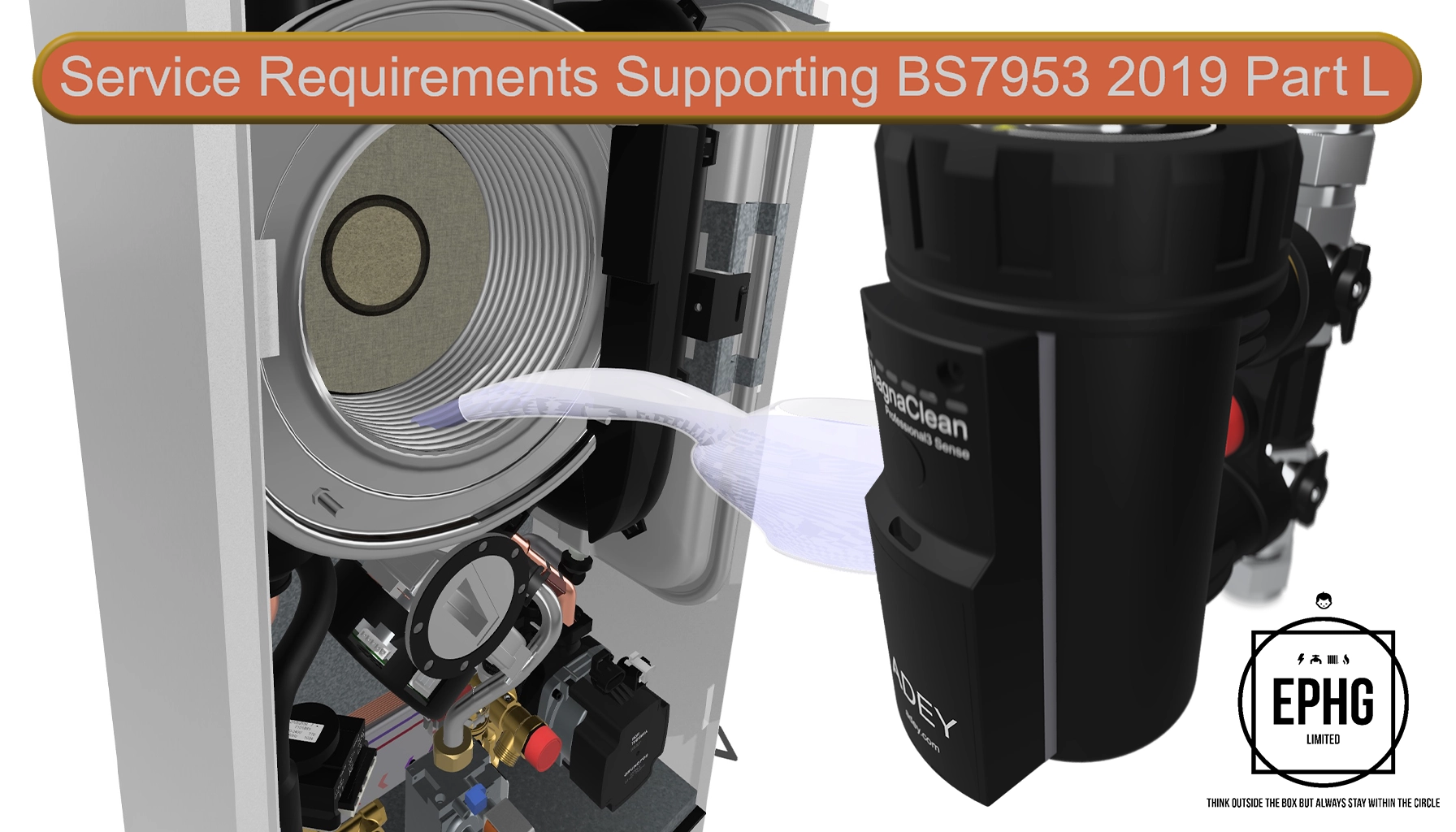Gas Boiler Service Requirements: BS 7593 and Part L Explained

Maintaining the efficiency and safety of your gas boiler is crucial for a warm and safe home. Understanding the guidelines provided by BS 7593 and Part L is key to ensuring your wet central heating system operates at its best. Here’s everything you need to know about what is required during a gas boiler service.
Please note: This is becoming effective from the 15th June 2022 and is current now.
What is BS 7593?
BS 7593 is a British Standard that outlines best practices for the treatment of water in wet central heating systems. It aims to maintain the efficiency and longevity of heating systems through proper water treatment and system care. These standards were updated in 2019 to include new requirements for cleaning, inhibitor use, and magnetic filters, making regular servicing even more important.
What is Part L of the Building Regulations?
Part L of the Building Regulations focuses on the conservation of fuel and power. It sets out requirements for the efficiency of heating systems, including gas boilers, to reduce energy consumption and carbon emissions. Part L emphasizes the need for modern, efficient boilers and effective system maintenance, which is where proper servicing comes into play.
Why is Servicing Your Gas Boiler Important?
Regular servicing ensures that your gas boiler operates safely and efficiently, preventing breakdowns and extending the life of your system. A service can identify any potential issues before they become costly repairs. For homeowners, maintaining compliance with BS 7593 and Part L is crucial for reducing energy bills and minimizing environmental impact.
Key Aspects of a Gas Boiler Service in Line with BS 7593
-
System Water Testing
BS 7593 requires testing of the water quality within your central heating system. This includes checking for pH levels, hardness, and signs of corrosion or sludge. The goal is to ensure that the water circulating in your system is properly treated, which helps prevent damage to the boiler and radiators.
-
Power Flushing and Cleaning
A power flush may be recommended during a service if sludge and debris are present. This thorough cleaning process is designed to remove contaminants from the system, improving circulation and efficiency. BS 7593 suggests that a power flush can be a vital part of keeping a wet central heating system in optimal condition.
-
Adding Corrosion Inhibitors
In line with BS 7593, adding inhibitors during a service helps prevent corrosion and scale build-up. These chemicals protect the inside of your boiler and radiators, ensuring longevity and maintaining energy efficiency. Regular checking and top-up of inhibitors are recommended to keep the system protected.
-
Magnetic Filter Installation and Maintenance
Magnetic filters are designed to capture metal debris that circulates within your heating system. BS 7593 encourages the installation of magnetic filters during a boiler service to enhance system efficiency and reduce wear on components. During a service, your engineer should clean out any collected debris from these filters.
Meeting Part L Requirements Through Regular Boiler Service
-
Annual Efficiency Check
Part L requires that boilers are regularly checked for efficiency. A service includes an inspection of the burner, heat exchanger, and controls to ensure that the boiler is operating at optimal efficiency, minimizing energy consumption.
-
System Balancing
Part L also involves balancing the heating system to ensure even heat distribution throughout the home. During a service, your engineer may adjust the flow rates to radiators, making sure that each room heats up as expected, improving comfort and reducing energy use.
-
Compliance Documentation
During a service, a qualified engineer will provide documentation that confirms compliance with Part L, ensuring your system meets current efficiency standards. This can be important for property sales and insurance purposes, as well as for peace of mind.
How Often Should You Service Your Gas Boiler?
It is recommended that you have your gas boiler serviced annually. This not only keeps your system compliant with BS 7593 and Part L but also ensures your warranty remains valid. Annual servicing also helps maintain the safety of your system, protecting you from potential carbon monoxide leaks.
Conclusion
Regular gas boiler servicing is essential for maintaining the efficiency and safety of your heating system. By adhering to the guidelines of BS 7593 and Part L, you can extend the life of your boiler, reduce energy consumption, and ensure your home stays warm throughout the year. If it's time for your next service, make sure to choose a qualified engineer who understands these standards.
If you have read through and are ready to choose your service, click here to return to the service selection page.
We also include a page for gas engineers to follow the room sealed gas boiler guide.
Disclaimer: The information provided in this article is for general informational purposes only and is not intended as professional advice. EPHG Limited does not guarantee the accuracy, completeness, or suitability of the information. Standards such as BS 7593:2019 and Part L may be subject to updates, and it is recommended that you consult with a qualified heating engineer or refer to the official documentation from the British Standards Institution (BSI) for the latest requirements. EPHG Limited will not be held liable for any errors, omissions, or damages arising from the use of this information. Always seek professional guidance for your specific heating system needs.